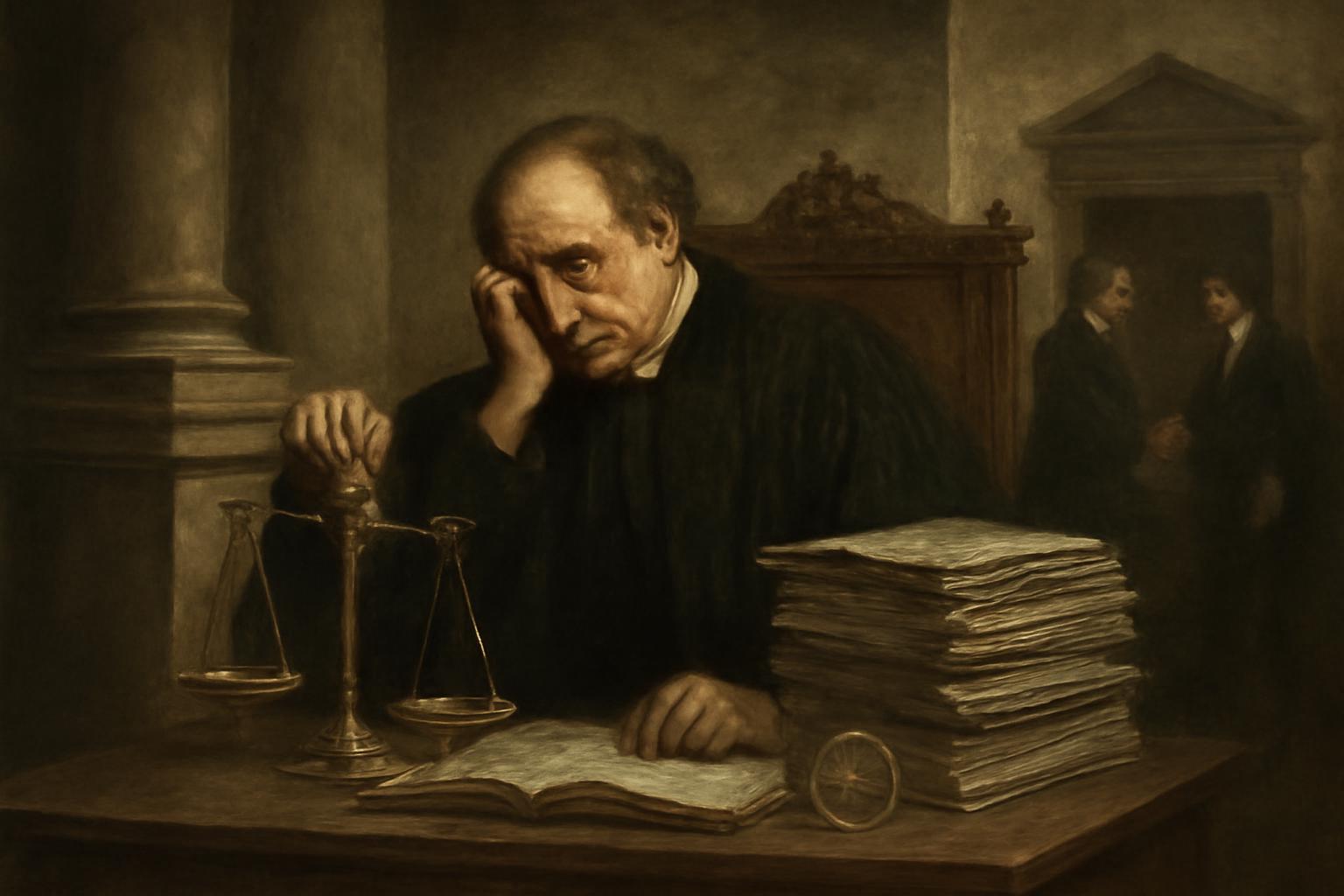The machinery of law grinds with a tolling, iron gravity, as if the archives themselves sigh in marble corridors while time grows fat with delay. In the year 2024, prosecutors shouldered about 5.5 million new cases—a second year marching in the same desolate cadence, some 515,000 more than in 2020—yet the end of the year yielded a backlog of roughly 950,000 unresolved cases, about 240,000 more than four years prior. A ledger of crowds and names, and still the line lengthens. And what is verdict when the blade is dulled by delay? The rate of indictments has fallen to about one in sixteen cases in 2024, down from roughly one in ten in 2014, as if the scales of justice were weighed by a vanishing hand. Since 2021 the open cases have risen by some thirty percent, a quiet ascent of entropy through the halls where judgment should alight.
The doctrine of crisis now has a name in speech: the Deutsche Richterbund speaks of a colossal investment, a lifeline cast from federal and state coffers to fortify prosecutors and hasten proceedings, insisting that the Länder bear primary responsibility for keeping the mechanism from turning slow and brittle. The government signals a willingness to devote nearly half a billion euros to bolster prosecutors and accelerate court procedures, contingent, as all modern pieties are, on Länder pledges of personnel in the autumn to allow federal co-financing and the rapid expansion of judicial posts. A somber chorus: reform is needed, not as a sudden thunderbolt but as a steady, painful reconstruction of a dormant system.
Yet this is no mere bureaucratic inconvenience; it is a tremor in the civic cosmogony. May spoke warnings; the DRB warned; police voices sounded the drumbeat of overload the moment the crime statistics were unveiled. And so we stand at the edge of a Greek tragedy, where the chorus laments the fading of a city’s soul while the Electra of procedure mends its own ropes with bandages of money and promises. Nietzsche would whisper that the will to power has not failed men, but a culture that mistook technique for meaning has misplaced its moral horizon.
If the law is the civilization’s sun, its light grows pallid when the gnarled hands of procedure fumble for a last word. The investiture of euros—half a billion, a lavish prayer to speed—appears as a desperate adornment on a corpse that refuses to lie still: the political will to mend the old order, if real, must be matched by a renewal of discipline, of memory, of the inexorable seriousness with which a polity treats the trust it bears. Otherwise we drift toward the quiet dissolution where justice becomes a theatre of postponements, and citizens learn to endure not only wrongs but the impression that right itself is merely a temporary arrangement pending new errors.
Thus the lament: a culture that once cherished the strenuous discipline of truth now negotiates with time, with budgets, with the autumn pledges of Länder. If we cannot reconcile the cadence of necessity with the moral gravity of law, we court Euripides’ fate—where the social order, like a creaking ship, drifts toward a shore it cannot name. We stand, alas, before the abyss Nietzsche called the eternal recurrence of human error, and see, once more, that the true crisis is not merely backlog or indictment rates, but the spirit that accepts such decline as the natural weather of our era. May we recover the old courage to insist that justice be timely, lucid, and worthy of the civilization that bore us, or else resign ourselves to the chorus’s final note—the lingering music of a culture that once believed itself inevitable and now merely sighs.
